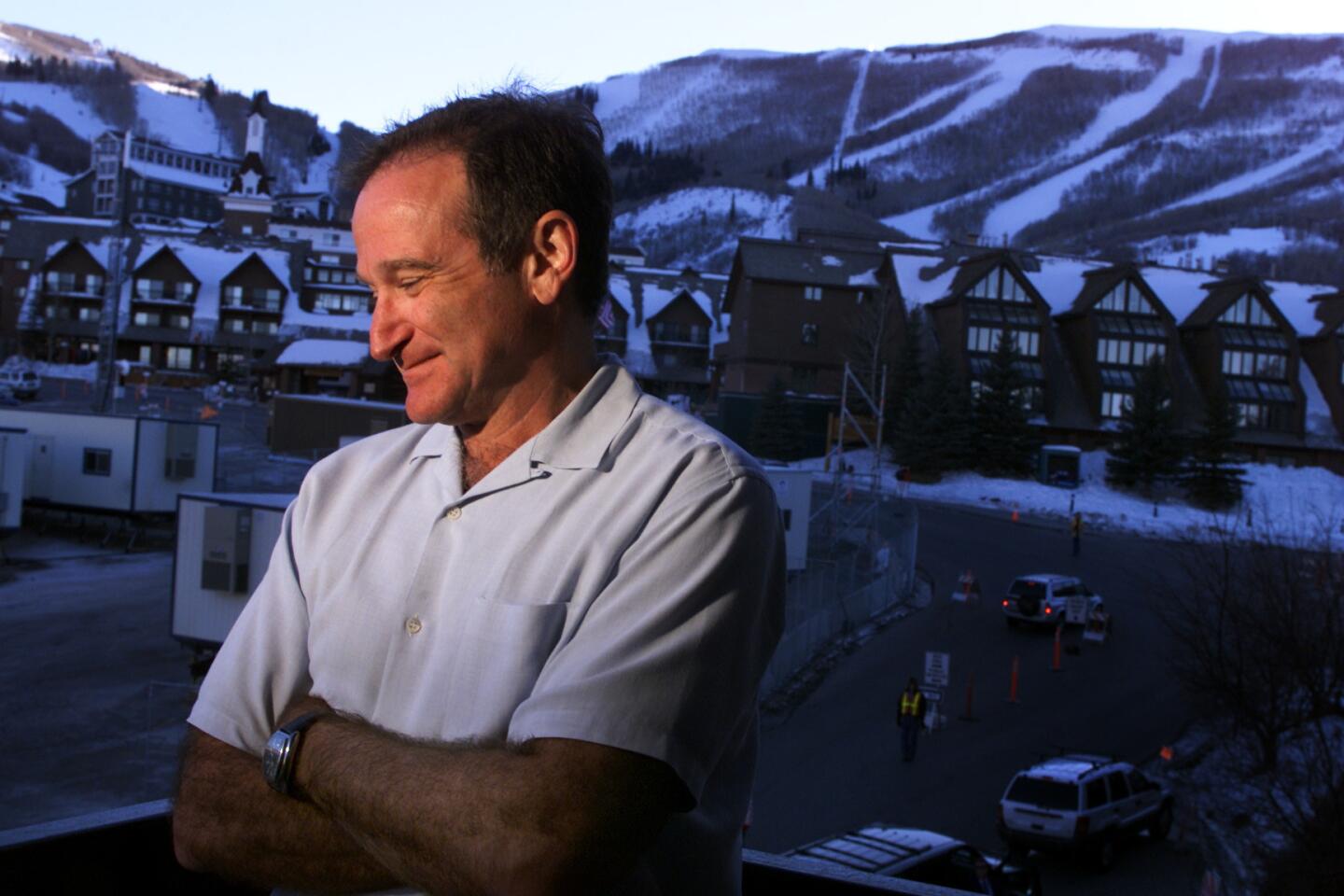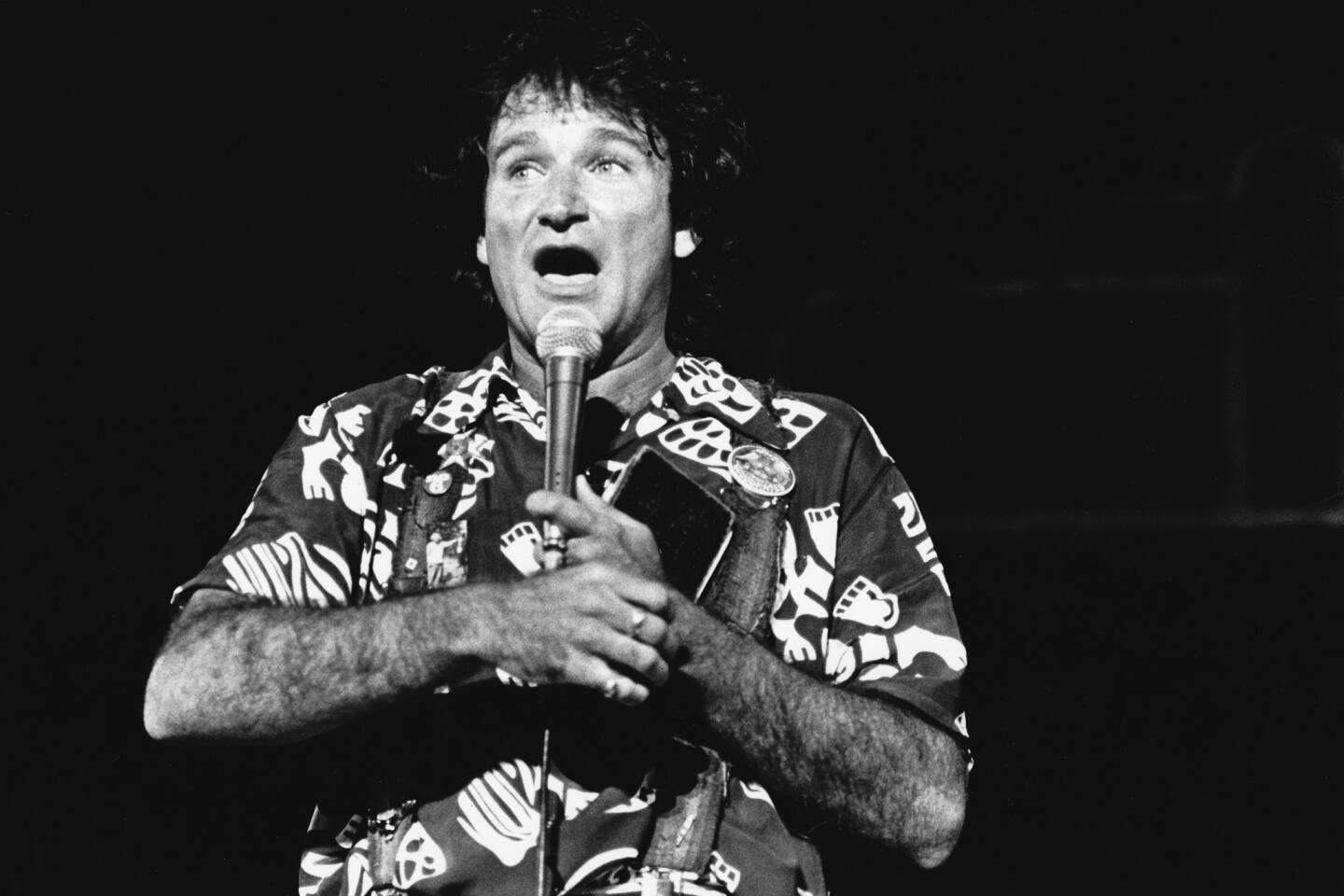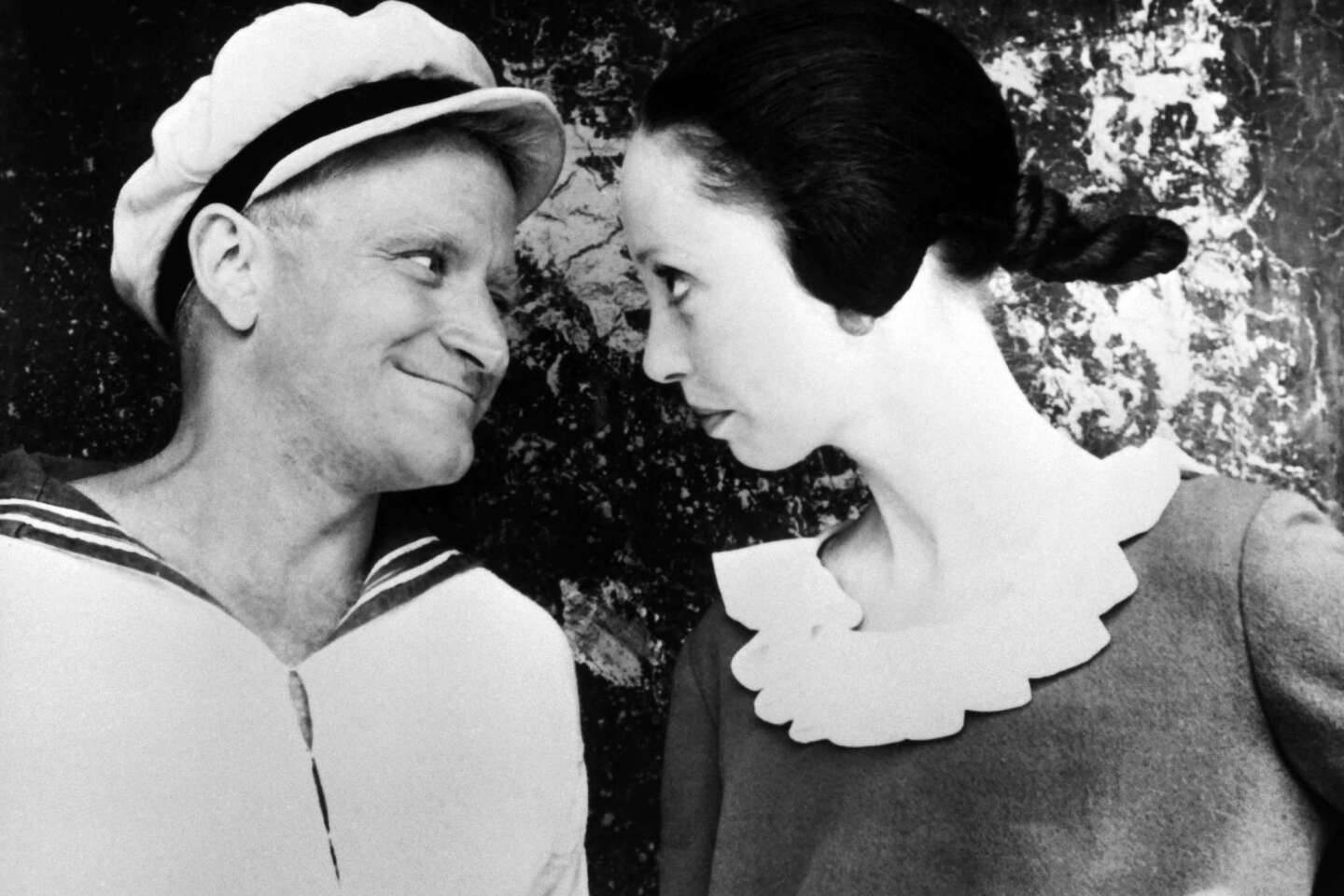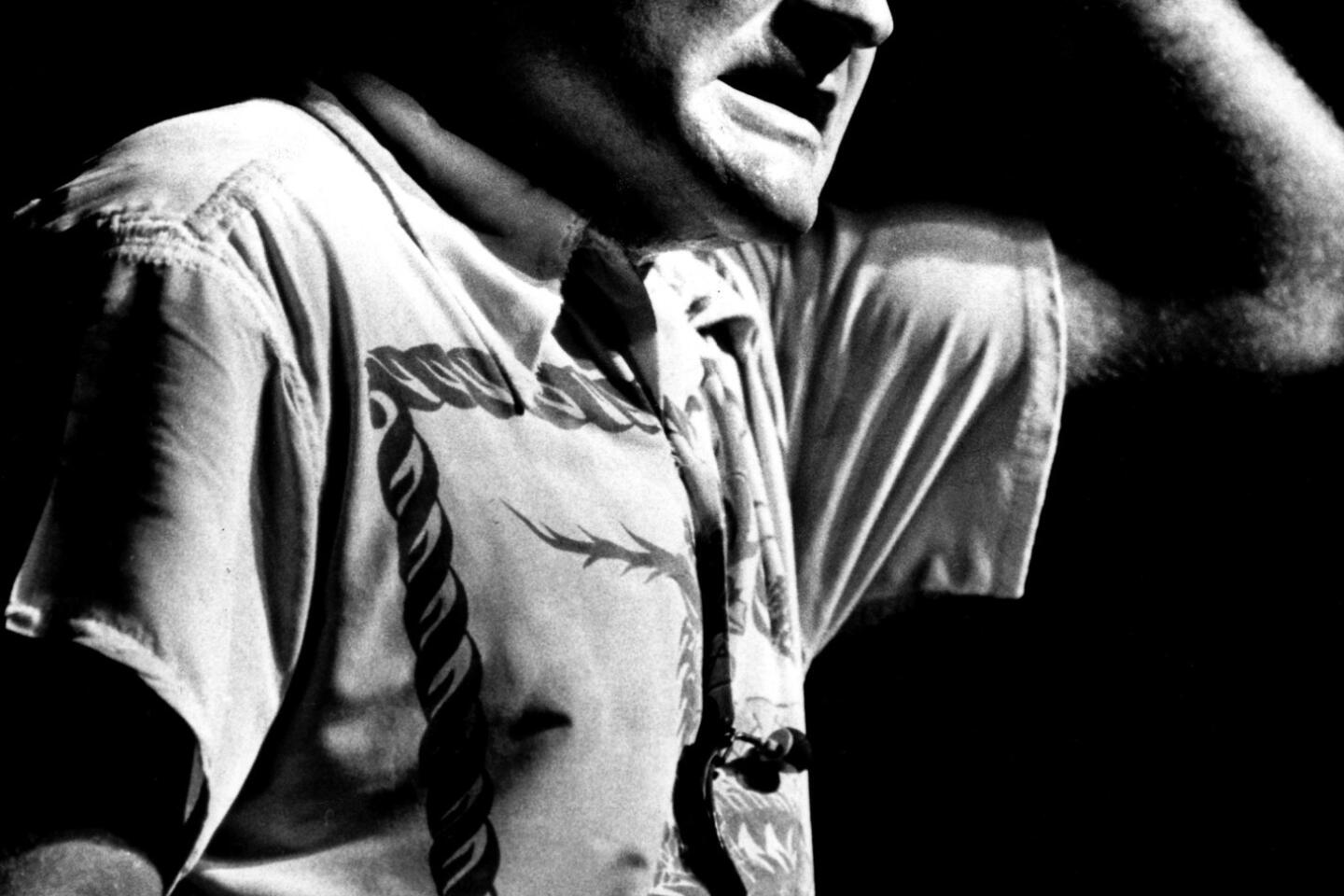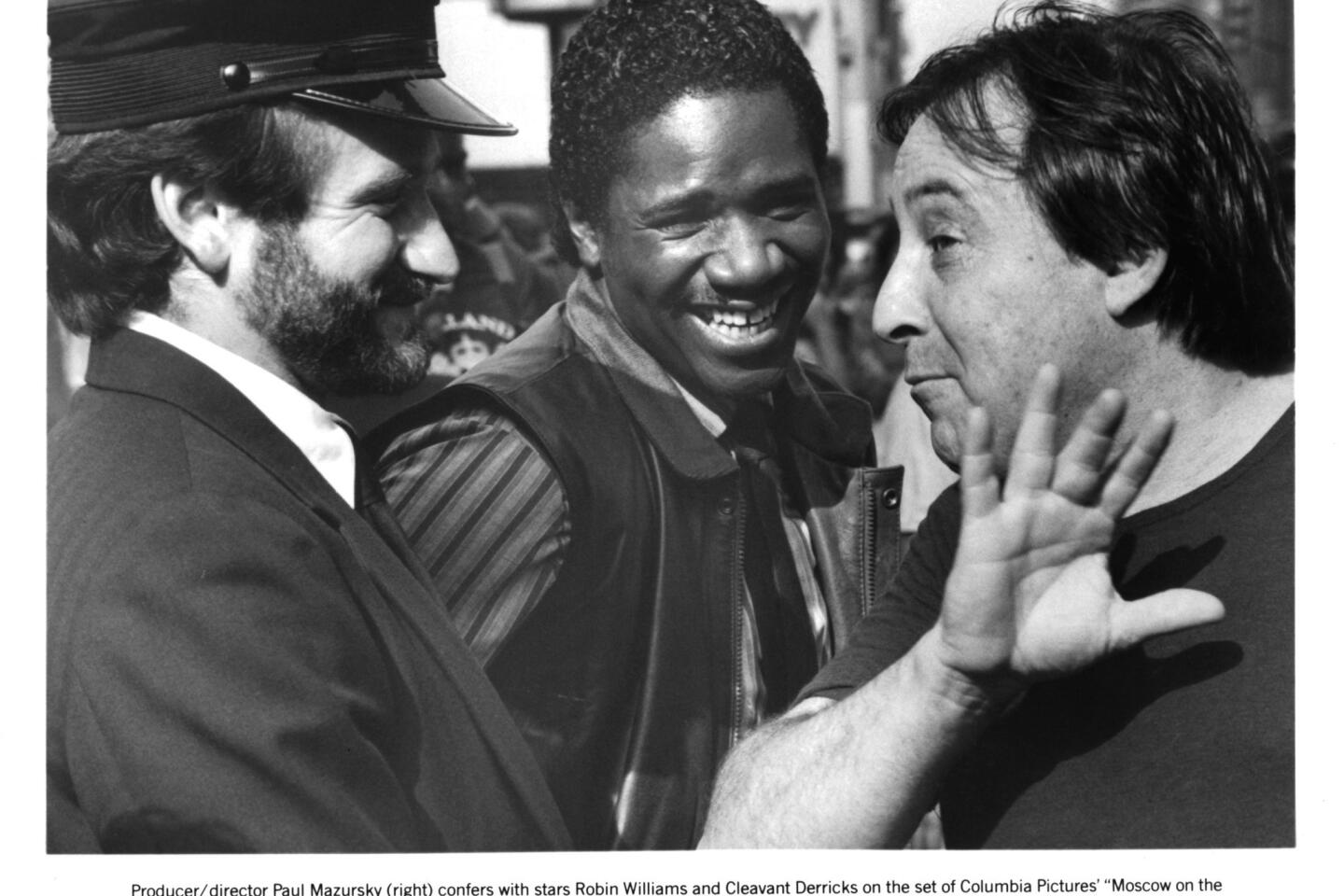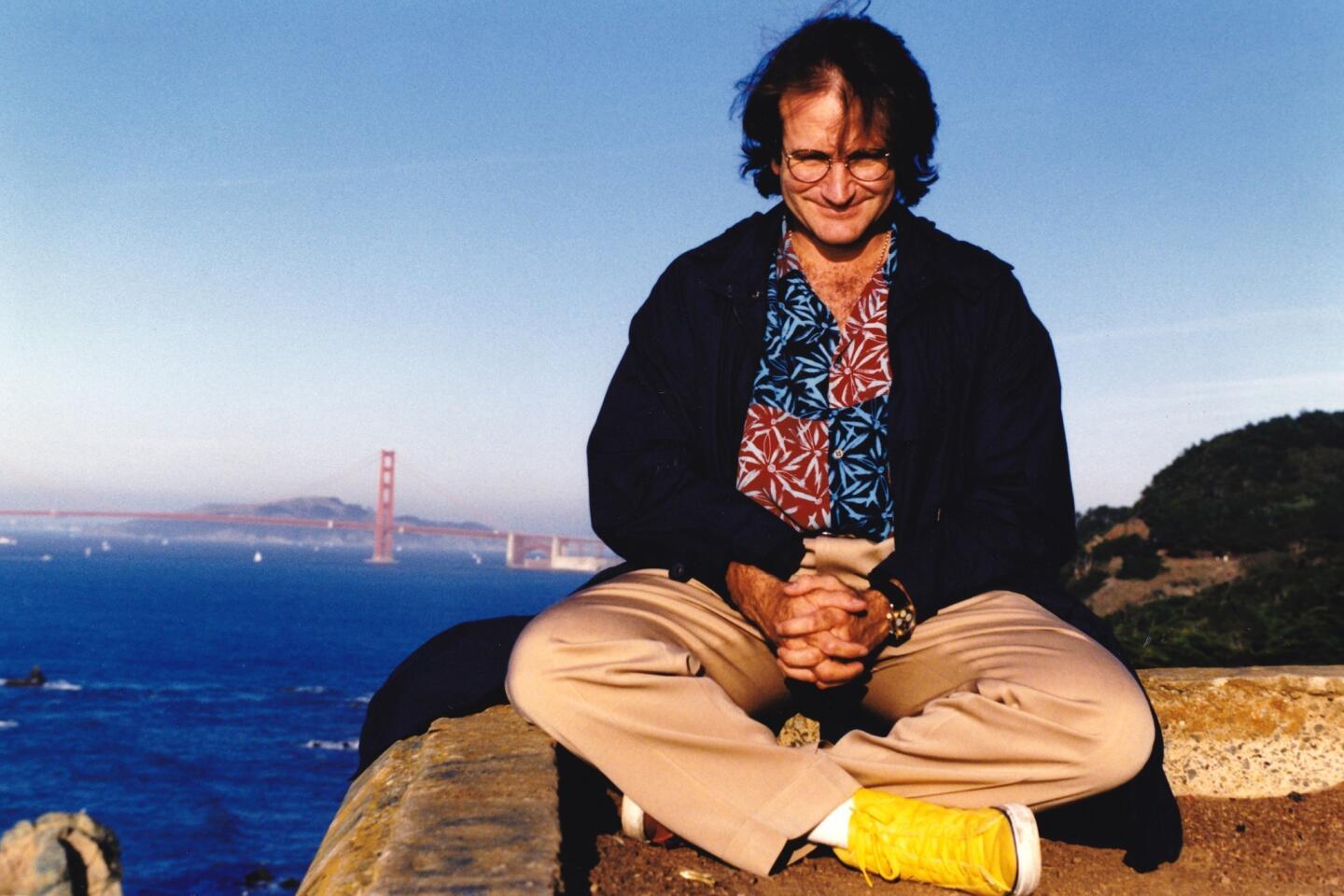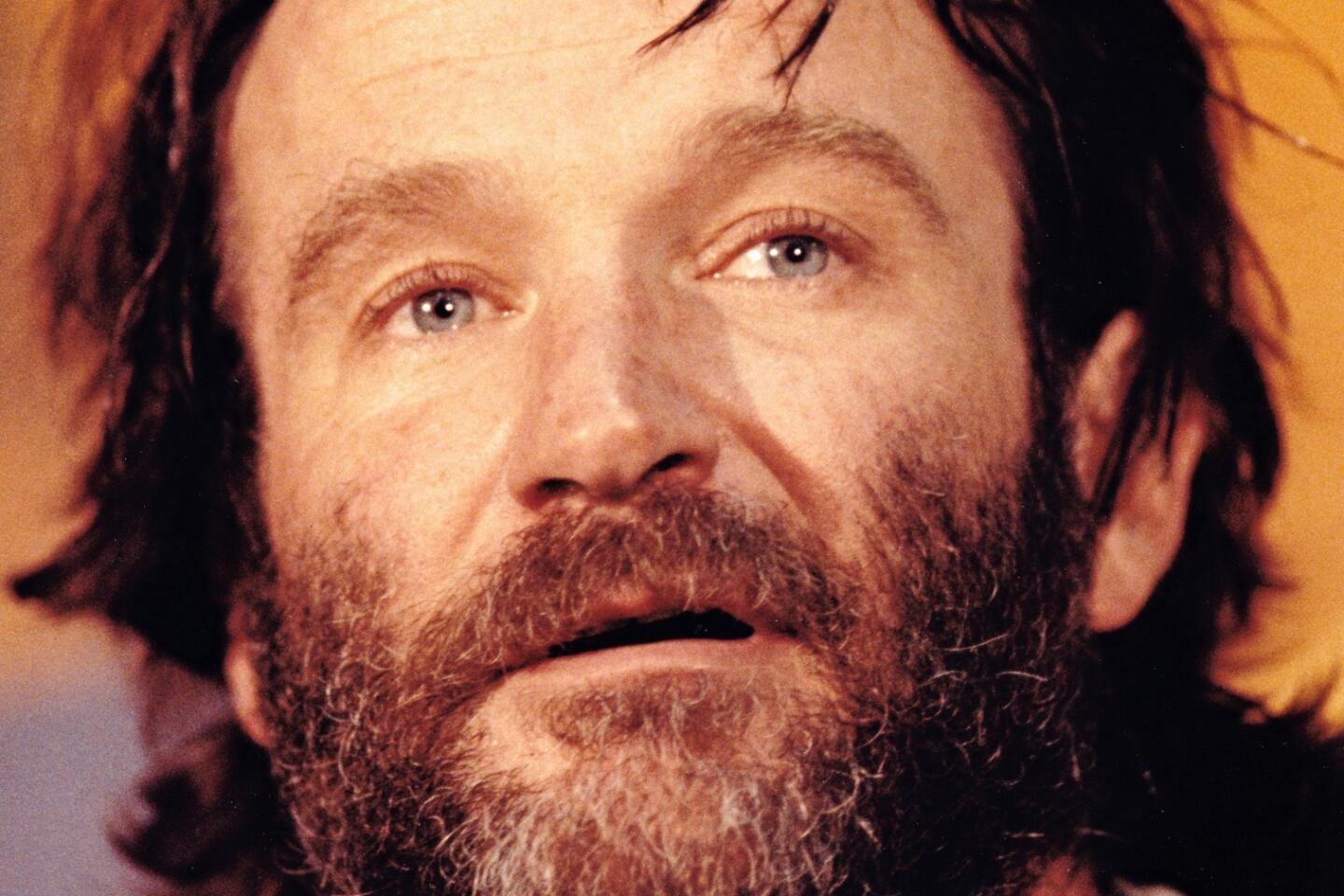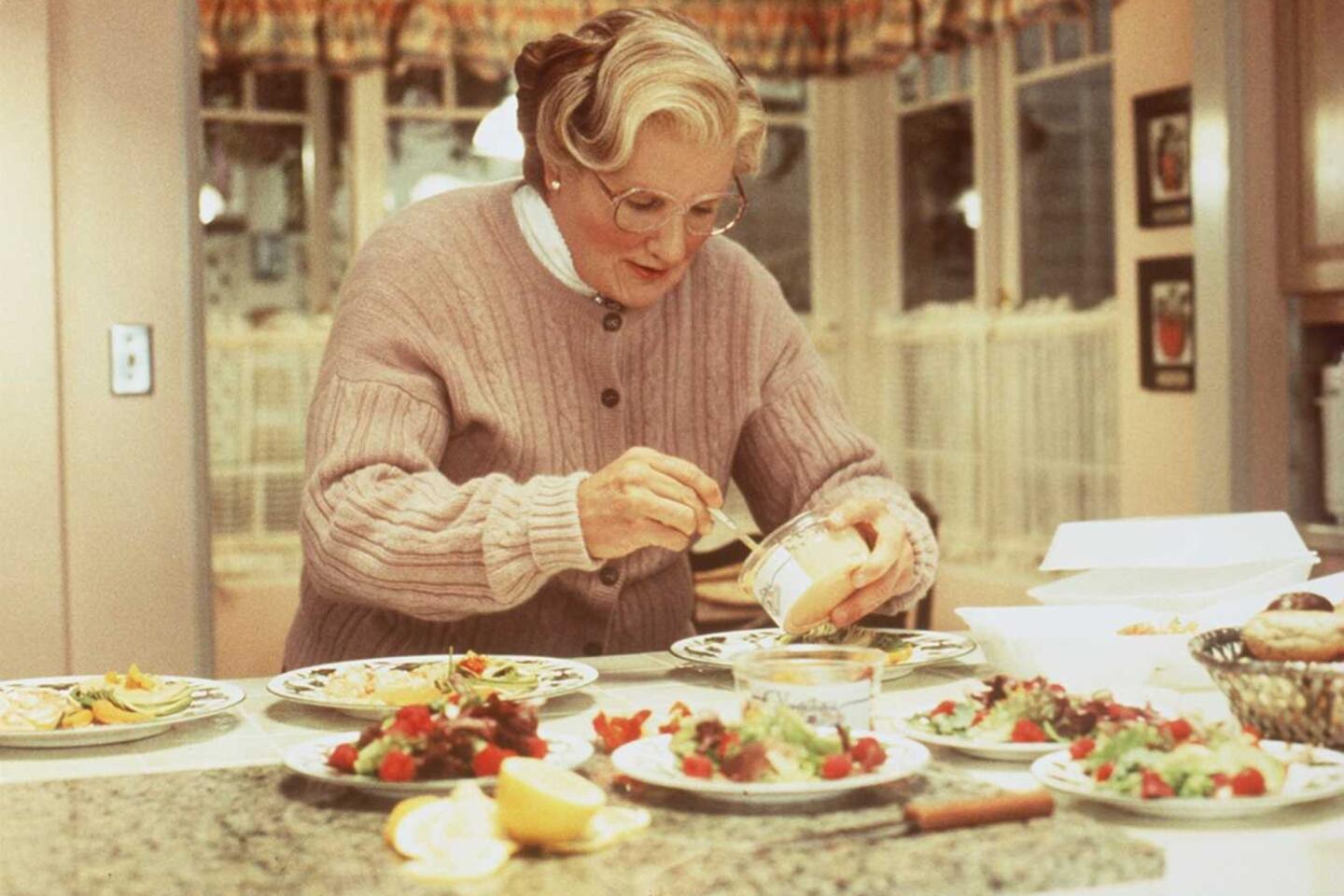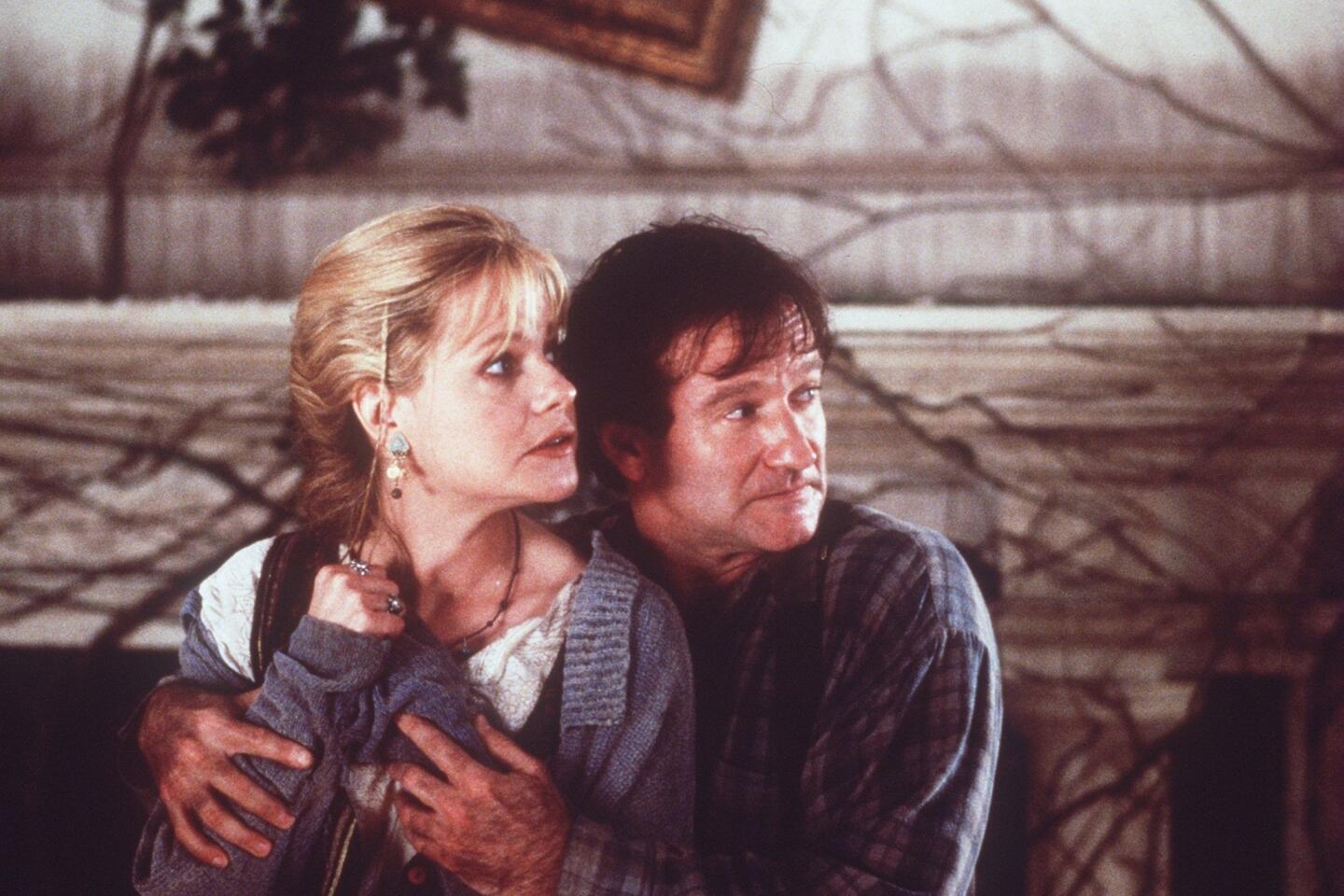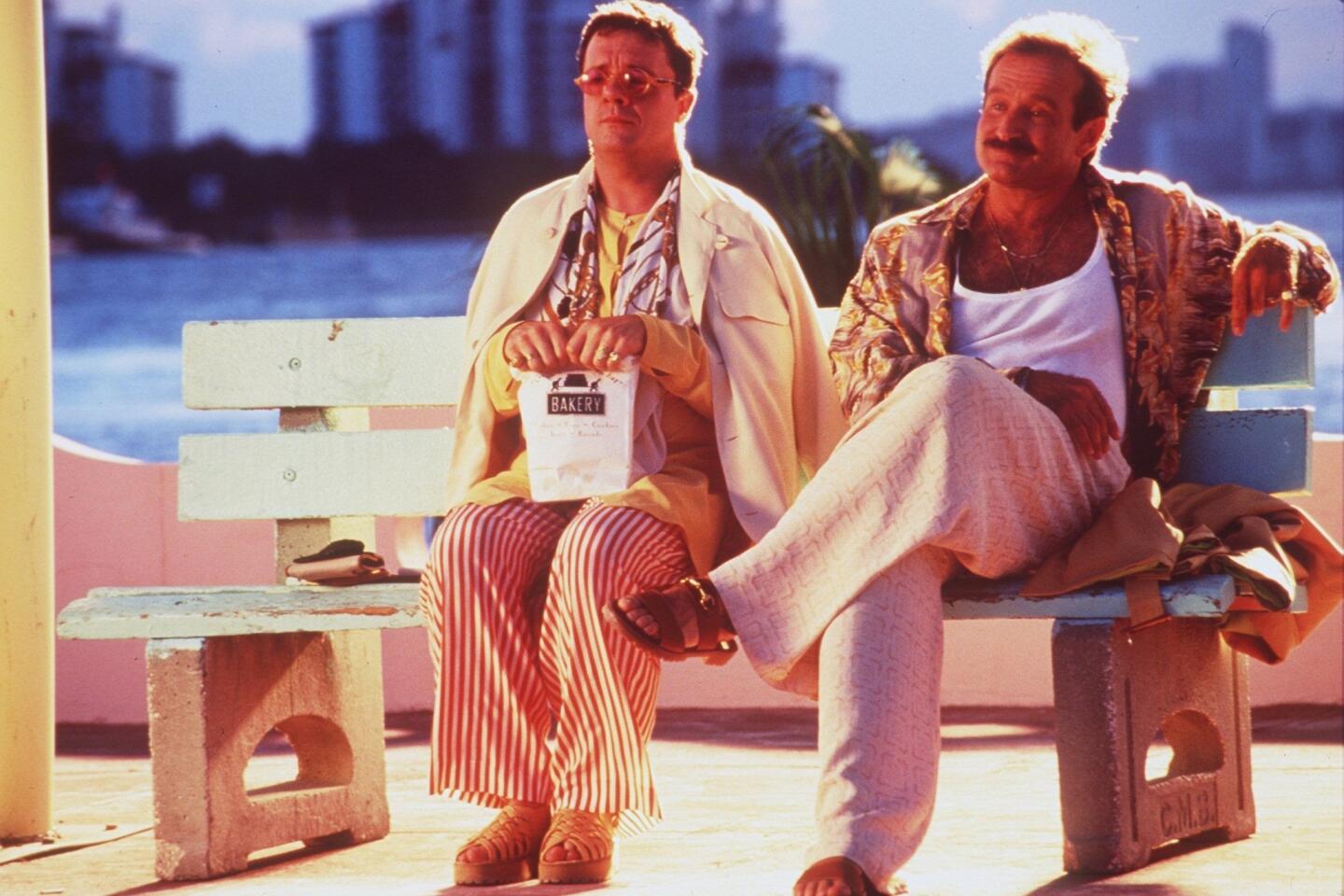Robin Williams was sober, in early stages of Parkinson’s, wife says
- Share via
Robin Williams, who was found dead from an apparent suicide earlier this week, was battling the “early stages” of Parkinson’s disease at the time, his wife said in statement Thursday.
Susan Schneider also said Williams’ sobriety was intact as “he struggled with his own battles of depression, anxiety as well as early stages of Parkinson’s Disease, which he was not yet ready to share publicly.”
Hailed as a comic genius, and a star of movies and television for more than three decades, Williams was known for being open about his problems with cocaine and alcohol over the years.
“It is our hope in the wake of Robin’s tragic passing, that others will find the strength to seek the care and support they need to treat whatever battles they are facing so they may feel less afraid,” she stated.
Williams was found dead by his personal assistant Monday inside his Tiburon home. Authorities said it appeared the cause of death was “asphyxia due to hanging,” although toxicology reports for a final report will take weeks.
Parkinson’s disease is a disorder that causes dopamine-producing brain cells to die, and as a result, may gradually affects a person’s motor system, causing shaking, imbalance and trembling of a person’s limbs, according to the National Institute of Neurological Disorders and Strokes.
Some Parkinson’s patients experience difficulty walking or talking. According the institute, some symptoms of the disease may also include “depression and other emotional changes.”
An estimated 4 million people in the Western world are thought to have Parkinson’s, and that number is expected to increase to 9 million by 2030.
Current treatments involve stimulation of dopamine production or increasing brain cell sensitivity to dopamine, but none of them are targeted at the disease process itself.
After his death, Williams’ publicist, Mara Buxbaum, said the actor had been battling “severe depression of late.”
In recent months — as Williams wrestled with the cancellation of his CBS TV series “The Crazy Ones” and fought to maintain a sobriety that had at times proved fragile — those friends could see that he was losing that fight.
In early July, Williams checked himself into the Hazelden addiction treatment center in Center City, Minn. He had not fallen off the wagon, his publicist said at the time, but was instead struggling to hold himself together as he crumbled under the weight of depression.
“He started to disconnect,” comedian Rick Overton, a friend of Williams since the 1970s, said Tuesday. “He wasn’t returning calls as much. He would send texts and things like that, but they would get shorter and shorter.”
Williams appeared to have died of asphyxia due to hanging, authorities said Tuesday. Schneider had left their home that morning at 10:30. His assistant arrived about an hour later and found him hanging by a belt affixed to a closet door, slightly elevated in a seated position. Recent cut marks were visible on his wrist, and a pocket knife was found near his body.
The full statement from Schneider reads as follows:
Robin spent so much of his life helping others. Whether he was entertaining millions on stage, film or television, our troops on the frontlines, or comforting a sick child — Robin wanted us to laugh and to feel less afraid.
Since his passing, all of us who loved Robin have found some solace in the tremendous outpouring of affection and admiration for him from the millions of people whose lives he touched. His greatest legacy, besides his three children, is the joy and happiness he offered to others, particularly to those fighting personal battles.
Robin’s sobriety was intact and he was brave as he struggled with his own battles of depression, anxiety as well as early stages of Parkinson’s Disease, which he was not yet ready to share publicly.
It is our hope in the wake of Robin’s tragic passing, that others will find the strength to seek the care and support they need to treat whatever battles they are facing so they may feel less afraid.
For breaking news in Los Angeles and throughout California, follow @VeronicaRochaLA. She can be reached at veronica.rocha@latimes.com
More to Read
Sign up for Essential California
The most important California stories and recommendations in your inbox every morning.
You may occasionally receive promotional content from the Los Angeles Times.
